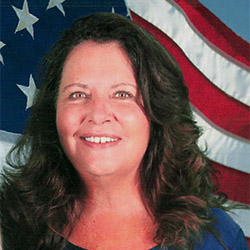
It’s December, the most anticipated and celebrated month of the year! While a lot of us grew up wishing each other a Merry Christmas, we’ve finally come to realize that there are quite a number of other holidays in the month. Since we’re not sure which holidays people around us celebrate, many people have taken to wishing each other Happy Holidays, to spread the joy around and cover all the bases. Christmas is such a well-advertised holiday that many people who are not Christian still celebrate it, in addition to whatever holiday they may celebrate in their own cultures. The run-up to December 25 is when many retailers make the bulk of their income for the entire year, thanks to the gift-giving that happens at Christmas. But there are so many other holidays! Hanukkah, the Jewish Festival of Lights, is sometimes celebrated around the same time as Christmas, but there are great variations in the timing of that holiday. Normally, it occurs between late November and December, although the exact dates change every year. This is because Hanukkah is always on the 25th day of Kislev in the Hebrew calendar. This is a lunisolar calendar, which means that, unlike the Gregorian calendar, the Hebrew calendar is based on both the Sun and the Moon. Kwanzaa, which was established in 1966 after the riots in the Watts area of Los Angeles, is a weeklong celebration held in the United States and honors African heritage in African-American culture. Seven candles are lit during Kwanzaa, representing the seven principles of Kwanzaa – unity, self-determination, collective work and responsibility, cooperative economics, purpose, creativity, and faith. The holiday begins on December 26 and ends on January 1. Boxing Day (in Ireland, St. Stephen’s Day) is celebrated on December 26 in most areas of the United Kingdom, as well as Canada. So the day after Christmas, wish Canadian friends and neighbors a happy Boxing Day! The curious name of the holiday has its origin in history: According to the Encyclopedia Britannica, the custom arose because servants, who would have to wait on their masters on Christmas Day, were allowed to visit their families the next day, and employers would give them boxes to take home containing gifts, bonuses and, sometimes, leftover food. Ōmisoka is celebrated in Japan on New Year’s Eve. Traditionally, important activities for the concluding year and day were completed in order to start the new year fresh. Some of these include house cleaning, repaying debts, purification (such as driving out evil spirits and bad luck), and bathing so the final hours of the year could be spent relaxing. Recently, families and friends often gather for parties, including the viewing of the over four-hour “Red/White Singing Battle”) on NHK, or more recently to watch large mixed martial arts cards. This custom has its roots in the ancient Japanese culture revolving around the practice of showing reverence toward the gods of the current and upcoming years. However one celebrates in December, even if it’s Festivus (“for the rest of us”), this writer hopes one has the opportunity to celebrate in the nude!
-BG Parkes
AANR-Florida Trustee

